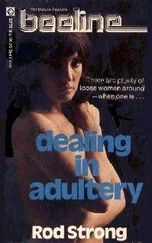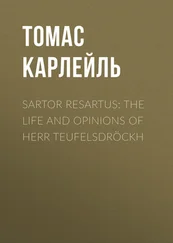Vladimir Nabokov - Strong opinions
Здесь есть возможность читать онлайн «Vladimir Nabokov - Strong opinions» весь текст электронной книги совершенно бесплатно (целиком полную версию без сокращений). В некоторых случаях можно слушать аудио, скачать через торрент в формате fb2 и присутствует краткое содержание. Город: New York, Год выпуска: 1990, Издательство: First Vintage International Edition, Жанр: Классическая проза, на английском языке. Описание произведения, (предисловие) а так же отзывы посетителей доступны на портале библиотеки ЛибКат.
- Название:Strong opinions
- Автор:
- Издательство:First Vintage International Edition
- Жанр:
- Год:1990
- Город:New York
- ISBN:нет данных
- Рейтинг книги:4 / 5. Голосов: 1
-
Избранное:Добавить в избранное
- Отзывы:
-
Ваша оценка:
- 80
- 1
- 2
- 3
- 4
- 5
Strong opinions: краткое содержание, описание и аннотация
Предлагаем к чтению аннотацию, описание, краткое содержание или предисловие (зависит от того, что написал сам автор книги «Strong opinions»). Если вы не нашли необходимую информацию о книге — напишите в комментариях, мы постараемся отыскать её.
Strong opinions — читать онлайн бесплатно полную книгу (весь текст) целиком
Ниже представлен текст книги, разбитый по страницам. Система сохранения места последней прочитанной страницы, позволяет с удобством читать онлайн бесплатно книгу «Strong opinions», без необходимости каждый раз заново искать на чём Вы остановились. Поставьте закладку, и сможете в любой момент перейти на страницу, на которой закончили чтение.
Интервал:
Закладка:
In Three: xxviii Pushkin's two learned ladies, one in a yellow shawl, as pedantic as a seminarian, and the other, a bonneted one, as grave as an academician (meaning member of the Academy of Sciences) are replaced in Arndt's version by a Buddhist priest («the saffron-muffled clerk in orders») and an English don («a mortar-boarded sage»), which, as boners go, is a kind of multiple fracture. Pushkin's hills which in the beginning of Chapter Five are «softly overspread with Winter's brilliant carpeting» become «mountain summits (in lowland Russia!) softly stretching 'neath Winter's scintillating shawl» (which produces an unexpected American-bosom image); the «sumptuous contact of yielding rugs» (One: xxxi) becomes the rather Freudian «voluptuous embrace of swelling carpets», and the «surgings» of a poet's «heart» (Four: xxxi) are gynandromorphosed into the «deep stirrings of [his] womb». There is no space to list all the glaring mistakes of this sort, and I shall mention only two more. In Six: xix Pushkin has listless Lenski, on the eve of his duel, «sit down at the clavichord and play but chords on it», a melancholy image which Arndt horribly transforms into: «the clavichord he would be pounding, with random chord set it resounding». And finally here is the bloomer in Arndt's version of the end of Three: xl where Pushkin speaks of a hare trembling as it suddenly sees from afar «a shotman in the bushes crouch» hut where Arndt changes the weapon and has the hare listen «as from afar with sudden rush an arrow falls into the brush». The source of this blunder will be explained in the next section.
9. Inadequate knowledge of Russian. This is a professional ailment among nonRussian translators from Russian into English. Anything a little too far removed from the kak-vy-pozhivaete-ya-pozhivayu-khorosho group becomes a pitfall, into which, rather than around which, dictionaries guide the groper; and when they are not consulted, then other disasters happen. In the abovementioned Three: XL passage, Mr. Arndt has evidently confused the word strelka , accusative of strelok (shooter, sportsman) with strelka (diminutive of strela, arrow). Sed'moy chas is not «past seven» (p. 149) but only past six. Podzhavshi ruki does not mean «arms akimbo» (p. 62) but «with snugly folded arms». Vishen'e is simply «cherries» (with which the girls pelt the eavesdropper in their song in Chapter Three) and not «cherry twigs» and «branches» with which Arndt makes them beat away the intruder. Pustynnyy sneg is «desolate snow», not «desert snow» (p. 122). V puhu is «covered with fluff» and not «a little dim» (p. 127). Obnovit'(Two: xxxiii) is not to «renovate» or «mend» but to «inaugurate». Vino in Two: xi is «liquor», not «wine». Svod in Four: xxi is not «freight», but «code». Hory (Seven: li) means the upper gallery of a public ballroom, and not «the involved rotations of rounds» — whatever that is.
10. Wobbly English. The phrase «next door» is used to mean «next room» (pp. 122 and 133). A skeleton impossibly «pouts» on p. 122. Lenski in the duel «closing his left eye starts to level» but Arndt (p. 132) makes him take aim with «his left eye blinking» like the corresponding tail light of a turning truck; soon after which (p. 157) «Dead lies our dim young bard and lover by friendly hand and weapon felled». And the amazon of Six: xli whom Pushkin pictures as halting her steed before Lenski's grave is hilariously made to «rein in her charging horse».
11. Padding. Plug words and rhymes are bound to occur in rhymed versions, but I have seldom seen them used with such consistency and in such profusion as here. A typical example of routine padding (for the sake of a bad rhyme) is the puffing up of the literal «she says: farewell pacific dales, and you, familiar hill tops» (Seven: xxviii) to become, in Arndt's version; «(she) whispers: Calm valleys where I sauntered, farewell; lone summits that I haunted». When in the same chapter Tatiana is described by Pushkin as avidly reading Onegin's books whereupon «a different world is revealed to her», this becomes with Arndt: «an eager passage (!) door on door (!) to worlds she never knew before». Here simple padding shades into the next category of mistranslation.
12. Otsebyatina . This convenient cant word consists of the words ot , meaning «from», and sebya , meaning «oneself», with a pejorative suffix, yatina, tagged on (its ya takes improper advantage of the genitive ending of the pronoun, coinciding with it and producing a strongly stressed bya sound which to a Russian's ear connotes juvenile disgust). Lexically translated, it can be rendered as «come-from-one-selfer» or «from one-selfity». It is employed to describe the personal contributions of selfsufficient or desperate translators (or actors who have forgotten their speeches). Here are some grotesque examples of otsebyatina in Arndt. Pushkin is describing (Eight: xxiv) the guests at Princess N's soiree: «Here were, in mobcaps and roses elderly ladies, wicked looking; here were several maidens — unsmiling faces». This is all there is about those ladies and maidens, but Arndt otsebyatinates thus: «... redecorated ladies with caps from France and scowls from Hades; among them here and there a girl without a smile from curl to curl (a fiendish ungrin!). My other example refers to One: xxxiii where Pushkin has a famous description of «the waves, running in turbulent succession, with love to lie down at her feet»; this becomes «the waves . . . with uproar each the other goading, to curl in love about her feet». One hardly knows what infects one's fancy more painfully here — those waves prodding each other with tridents or that little drain-hole vortex in which their «uproar» ends.
Mr. Arndt's notes to his translation are lean and derivative but even so he manages to make several mistakes. The statement (p. xi) that the third edition of Eugene Onegin «appeared on the day of Pushkin's death» is wrong: it appeared not later than January 19, 1837, Old Style, that is at least ten days before the poet's death. He began writing Eugene Onegin not «on May 28, 1822», as Arndt (led astray by another bungling commentator and adding his own mistake) notes, but on May 9, 1823. The statuette of Napoleon with folded arms in Chapter Seven is not a «bust» (as stated in a note on p. 191): normal busts do not have arms to fold. The remark on p. 223 that «... Prolasov has been proposed» to fill in a gap in the printed text (first line of Eight: xxvi) is nonsense, since «Prolasov» never existed, being merely a comedy name (meaning «climber» or «vile sycophant») preserved in Pushkin's fair copy and misapplied by some editors to Andrey Saburov, director of the Imperial theaters.
Mr. Arndt's most bizarre observation, however, comes on page vi, towards the end of his preface: «The present new translation ... is not aimed primarily at the academic and literary expert, but at a public of Englishspeaking students and others interested in a central work of world literature in a compact and readable form». — which is tantamount to proclaiming: «I know this is an inferior product but it is gaily colored and nicely packed, and is, anyway, just for students and such people».
It is only fair to add that this «brilliant» (as said on the upper-side of the volume) and «splendid» (as said on its underside) new translation has won one half of the third annual Bollingen prize for the best translation of poetry in English (as the librarian James T. Babb of the Yale University Library announced on November 19, 1963, in New Haven, Conn.). The committee making the awards included Professors Peyre, Rene Wellek, and John Hollander, of Yale; and Professor Reuben A. Brouwer, of Harvard University. (I rely on Steve Kezerian, Director of the Yale University News Bureau, for the spelling of these names). Representing the permanent committee of administration at Yale was Donald G. Wing, Associate Yale Librarian. One cannot help wondering if any of the professors really read this readable work — or the infinitely remote great poem of their laureate's victim.
Читать дальшеИнтервал:
Закладка:
Похожие книги на «Strong opinions»
Представляем Вашему вниманию похожие книги на «Strong opinions» списком для выбора. Мы отобрали схожую по названию и смыслу литературу в надежде предоставить читателям больше вариантов отыскать новые, интересные, ещё непрочитанные произведения.
Обсуждение, отзывы о книге «Strong opinions» и просто собственные мнения читателей. Оставьте ваши комментарии, напишите, что Вы думаете о произведении, его смысле или главных героях. Укажите что конкретно понравилось, а что нет, и почему Вы так считаете.










